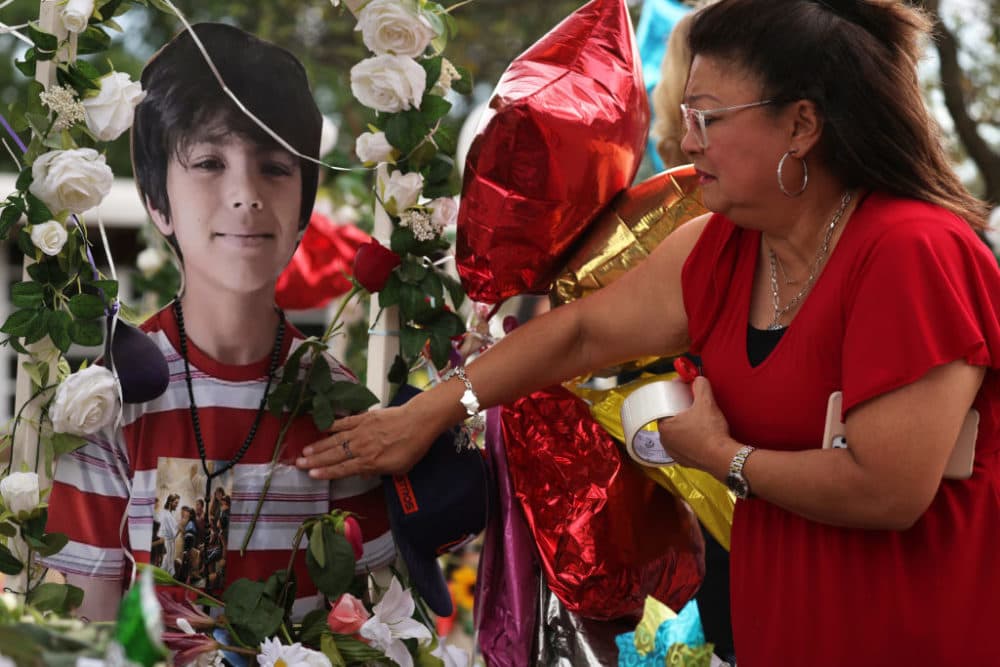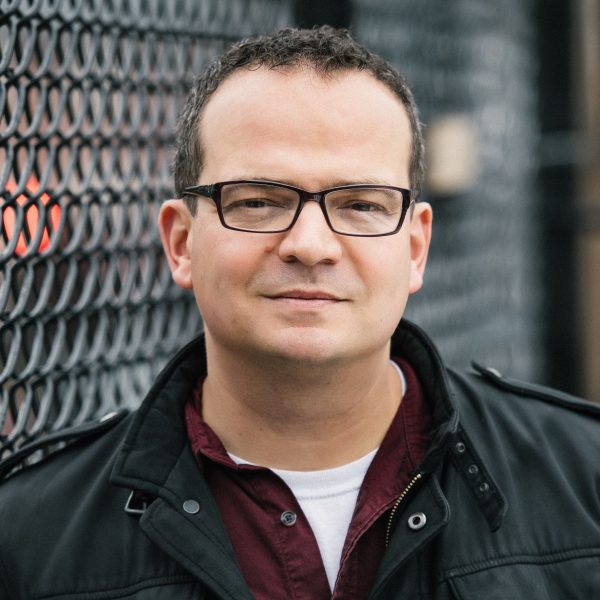Advertisement
Commentary
Don't turn away from the young victims in Uvalde

When I see photos of the kids who died at Robb Elementary School, I see so many of the students I’ve taught over the years. I see their gelled hair, their backpacks heavy with books, their fresh kicks and fresh faces. I see them laughing at their lockers, wiping sweat from a quick game of recess hoops and leaning over laptops. I do not see them — don’t want to imagine them — crouching under desks to avoid gunfire, or pretending to be dead while the police wait outside in the hall, doing nothing.
This spring marks my 20th year in urban education. That’s a lot of back-to-school nights, faculty meetings, weekends of grading, field trips, testing days, and more recently, Zoom calls. I think of all the extraordinary people I’ve met over the years — the custodian who took troubled students under her wing, and the grandparents who survived a civil war to bring pupusas to a school’s open house, and the kids who sheltered each other from the taunts of classmates. I don’t want to imagine this kind of horrific violence impacting their lives.
Sadly, gun violence already touches many of my students and their communities. I remember kids who came to class wearing t-shirts with the faces of deceased loved ones. I remember heartbreaking essays about friends or cousins who were shot. And I remember that one time in the cafeteria when I stood between two boys who were about to swing at each other; later someone told me I’d jumped over a table to intervene, but I had no memory of it whatsoever. Such moments of violence were rare — much rarer than you might think if all your information about inner city schools comes from news accounts and Hollywood movies -- but they did happen.
I don’t want to imagine barricading the classroom door to prevent an active shooter from storming inside what once was — and should be — a safe space. It hurts to look at the photos of the teachers in Uvalde, too. Because when I see them, I see my colleagues. Yet, once again people are talking about arming educators. Some are talking about door locks, metal detectors and the presence (or absence) of armed security in schools. Others are talking about access to mental health services. Many are talking about the failure of Congress to move forward on basic gun reforms, such as universal background checks, supported by 90% of the population. The predictability of the conversation speaks to the repetitive nature of school violence. It speaks to our collective failure as a society to make the safety of our children a priority.
But this crisis is more than a failure of leadership to address senseless trauma and death with common sense policies. For so many of us, it is deeply personal. Because there’s another reason I have to look away quickly from the photos of those kids: When I see them, I see my own son.
He is a third grader, part of a close-knit Guatemalan American family with cousins in Texas. Like so many parents, my wife and I struggled with the question of how to talk to him about Uvalde. Yet another infuriating and predictable element of this tragedy: children inevitably reach an age when we need to talk to them about school shootings.
We read all the articles and prepared our phrases, trying to anticipate his questions. Our son is 9 years old, and he loves reading and hip hop and Japanese animation and basketball. He is a sensitive kid, and I was afraid he would be upset, maybe scared. I am scared myself, because that’s what it is to be a parent: fierce love that fills us with terror. And the world keeps justifying that fear.
When we explained what had happened, he looked back and forth between us, silent.
“Do you have any questions?” I asked.
Advertisement
He shook his head.
According to the parenting articles, you were supposed to let your children’s questions lead the way. So we waited, unsure of what to do or say. After a while, my wife slid over next to him and put an arm on his shoulder.
“Are you okay?” she asked.
He nodded, still silent.
“Do you have any questions?” I repeated.
After a long pause, he spoke. “What time is the Celtics game?”
I imagined they were thinking about the game, too ... or about lunch, as their attention wandered in class ... just before they heard the crack of gunfire and their teachers turned out the lights.
I had the impulse to laugh, and for just a moment, I was grateful. I wanted my son to keep on being a child. I wanted the world to grant him this grace.
Only then I thought about the kids in that photo. I imagined they were thinking about the game, too, or maybe about their big sisters, or about lunch, as their attention wandered in class and they stared out the window, just before they heard the crack of gunfire and their teachers turned out the lights.
What I want for my son, I want for all kids. In its essence, this is what fuels the work of teachers and schools: a belief that all students deserve an opportunity to learn and thrive. Being an educator has always been optimistic work and it’s always required courage — now more than ever.
The least I can do is refuse to look away from the faces of those kids who lost their lives. They are all of our children, and it is our collective responsibility to mourn their loss, and then get to work. Building a better world begins with an act of radical imagination.
